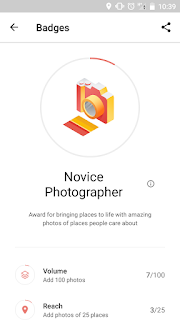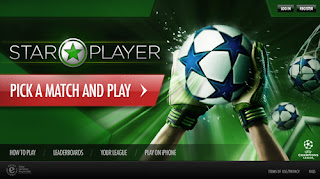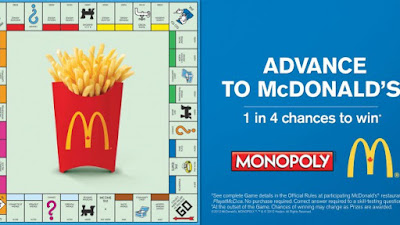Gamification in Google Maps - Part 2
Gamification
in Google Maps - Part 2
The world of online maps has
become very intriguing, with companies like Google taking the game to the next
stage by looking to engage users and developers to create and use the platform
in ways that will ensure continued usage and relevance for all stakeholders. An
example of how serious Google is about this could be seen by the giveaway of 1 terabyte
of free data storage to entice prolific reviewers to join its Local Guides
communities and help it achieve its mammoth goal of creating a massive
wiki of location reviews for the entire world. This program will help
Google Maps better compete with Apple Maps, which is powered by
Yelp, TripAdvisor, and Booking.com reviews of local businesses. Perhaps it will
win back the hearts and minds of users who maybe are tired of giving Google their
data for free. Google has gamified its platform from two perspectives. One, It
has allowed users to engage with the platform via the Local Guides Community.
This community employs game mechanics and elements like points, levels, and
badges on a very basic level. Two, it has allowed developers a free hand in
developing locations on Google maps into a fantasy world like settings with the
help of augmented reality.
For the Users:
Google's gamification strategy
is straightforward: Users sign up as a Local Guide in a city of their choice and
begin populating the map with places, photos, updating information, or
providing tips. Each place can earn a guide up to five points towards the
top prizes of up to 1 TB of free Google Drive storage and a chance (you
get to apply for it!) to earn a trip to Google Connect Live Summit i at Google's Headquarters in California.
Here's what points can earn
you as a Local Guide:
- Level 1 (0 - 4 points): Enter exclusive contests (think new Google devices!) in select countries.
- Level 2 (5 - 49 points): Get early access to new Google products and features.
- Level 3 (50 - 199 points): Show up in the Google Maps app with your official Local Guides badge.
- Level 4 (200 - 499 points): Receive a free 1 TB upgrade of your Drive storage, allowing you to keep all the stories, photos, and videos from your travels in one safe place.
- Level 5 (500+ points): The very top Local Guides will become eligible to apply to attend the inaugural ‘ Connect Live’ summit in 2016, where you’ll be able to meet other top Guides from around the world, explore the Google campus, and get the latest info about Google Maps.
How much these prizes will entice
people to spend their free time sharing their opinions and photos is anyone's
guess. With the death of Foursquare, it's been a while since a badge was
considered valuable currency. Google Photos already offers unlimited storage,
so unless people are backing up their entire hard drive, 1 TB of Google
Drive storage seems like overkill especially if you have to work for
it. But never underestimate the power of exclusivity to combat review fatigue.
For Developers:
In March 2018, Google announced a new tool that makes it possible for
developers to turn real-world Google Maps locations into fantasy settings via
augmented reality. A new API will transform your local coffee shop or noodle
hangout into “a medieval fantasy, a bubble gum candy land, or a zombie-infested
post-apocalyptic city,” in the words of Clementine Jacoby, product manager,
Google Maps APIs, who wrote about the new feature in a blog post announcing the
API.
This means that Google Maps
locations can now be transformed into locations for experiences such as
scavenger hunts, adventures, and Pokémon GO-style games. As Jacoby wrote, “With
Google Maps’ real-time updates and rich location data, developers can find the
best places for playing games, no matter where their players are.”
Conclusion:
The gamification of Google Maps gives
us a glimpse of the future and the possibilities it holds. At its core, Google
Maps will always be an essential utility for wayfinding. Looking at the
immense success of Pokémon GO, technologies such as augmented reality are
uncovering another use for location-based information, which is nothing but
entertainment. Just like Pokémon GO showed that the multibillion-dollar gaming
industry is not confined to gamers glued to computer screens indoors, but that it
can be an outdoor experience that touches multiple locations, tapping into
natural behaviors and habits of people.
Google is paving the way for the
development of augmented reality applications by way of the tools it provides
for public use, such as AR Core, its toolkit for developing augmented reality
experiences. By making Google Maps a more interactive, augmented reality-based
experience, Google has opened the playing field for game developers. For
instance, Next Games is developing a Walking Dead: Our World game
integrated with real-world locations. NBC Universal and Ludia are doing the
same with a Jurassic World Alive game, as is Sony Pictures
with a Ghostbusters World game. These are some of the few
examples that show what the future has in store for users who seek experiences
that will help the, recreate real-world locations. This can be further
leveraged by brands to create positive outcome based behaviors that will help
build better brand equity.




Another helpful resource on this subject: https://www.forbes.com/sites/lianeyvkoff/2015/11/16/google-gamifies-local-guides-to-boost-maps/?sh=7b5477ad8c9d
ReplyDelete